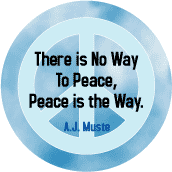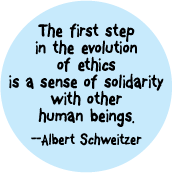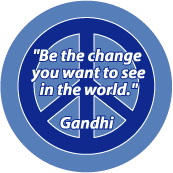Having
Evolved
Too keep
Every last won
Of this sophisticated specious
Under opposable thumbs
Like a perch
In a stream of consciousness
Executing my porpoise
The best
I can do
A thwart on the phase of humanity
This avowing
That it is
Just us
And by what means
Can we make a diffidence
Of that a ledge
Too due
Joining the crowded
Signing off
On that
Collective bargain
As wee
All a greed
As far as we reckon
Bunching up
In a scanty throng
Of self-proclaimed wizzes
In the brook of life
Where awe is swill
In our out standing potable potty
In the heat of august
Quenched
Buy the patently falls
That is
Not so
Crappy
Requited in terminally wading
Who gets
The last ward
From what sores then
Only then
Where naught else fallows
To find oneself
In silence
A loan
Yet not feeling solo
In fact
Feeling unrivalled
Caching in
Empyreal cents
Fore that which is
Unfallible
Without rank
Revolting
Caste a side
Even without
Empty congregation
For going
As it is written
Upon stationery
In place of life
Wear awe is won
In a corporeal merger
Of all that is ardor
With all that is light
Enrolled into one
That mystical union
Joining arts
And boundless trades
Uniting awe
In a baptism of matchless flare
Emerging from water
Besting the supposed fin
By no less than two feet
Upright
On wholly ground
Accompanying sound sole
In the rarefied guardin’
Of one constitutional
Heartwarmingly vein to sum
Countless succeeding
With heir to breathe freely
Living in
The hear and now
Beyond what can be herd
No longer weighting
Only to expire
That which is fleeting
Trafficking in exclusion
Flailing to sea
The catch all
Recognizing each
To be won
Of a kind
Here is a poem that plays with themes of the oneness of consciousness, the oneness of humanity, and the merging of the spiritual and physical realms. Of course, it begins with recognizing the sea of vanity that passes for much of so-called civilized life. Seeing past this pollution is a necessary precondition to more fully experience life’s ever-present gifts and freely give our unique selves to the world. This requires mastering letting go more-so than grasping. Letting go prepares us to receive the perpetual, dare I say eternal, stream of gifts available to us at any given moment. This process of freely receiving this veritable tsunami of presents is only possible when harmoniously matched with freely giving, letting go, which continues, reflects, and magnifies the true abundance in which we are awash. The difference between this process and the close-minded, close-hearted clinging and collecting of much of daily life is the difference between heaven and hell — perhaps even heaven and hell!
Giving and receiving is one of the central yin and yang of our lives. Much of the pain in life can be traced back to the felt need to keep account of all of the giving and receiving that is going on, and then expending precious energy (sometimes called ‘work’) attempting to make sure that the receiving side of our ledger is adequate. Then, when we have ‘enough,’ we can be gracious on the giving side. I suspect that how we answer the question with our lives, “how much is enough?” lies at the heart of how well we contribute to our shared humanity and shared reality. The harmonious yin and yang of giving and taking is often befuddled and turned upside down by a predominant (and ultimately dominating) focus on receiving, aka taking. This conundrum rests on how we answer the proverbial question of “which came first, the chicken or the egg?” — in this case, giving or taking. As any practiced Taoist would realize, these yin and yang questions are ultimately incomprehensible without a deep appreciation for balance, or, as the Taoist would say, complementariness. I think this is also why Buddhists are not big on origin or creation stories (‘egg’ stories); what we have at any given moment is much more important than accounting for where it came from. The Christian contribution to this dialogue is a focus on grace, that any giving on our part is only made possible by something outside our selves gracing us with anything to give. In the human experience, grace, and the gratitude that evolves from living in it, quite universally leads to more harmonious (happy) living. Our natural propensity toward accounting cannot escape the balance shit completely!
 As a devotee of social justice, the problem of the balance sheet often consumes — or at least dominates — any conception of justice. I prefer to frame justice as harmony and injustice as disharmony. Both the way and the goal, the means and the ends, is peace (harmony). As one of my favorite pacifists, and fellow Hope College alumnus, A.J. Muste proclaimed, “There is no way to peace, peace is the way.” I see the chicken and egg argument about which comes first, peace or justice, as the divide between self and other; that is, injustice is typically described as conditions of disharmony outside one’s self, amongst the human community and our shared reality. The role we contribute to bringing justice into the world is one of bringing harmony. And as most any human would agree: you can’t give what you don’t have!
As a devotee of social justice, the problem of the balance sheet often consumes — or at least dominates — any conception of justice. I prefer to frame justice as harmony and injustice as disharmony. Both the way and the goal, the means and the ends, is peace (harmony). As one of my favorite pacifists, and fellow Hope College alumnus, A.J. Muste proclaimed, “There is no way to peace, peace is the way.” I see the chicken and egg argument about which comes first, peace or justice, as the divide between self and other; that is, injustice is typically described as conditions of disharmony outside one’s self, amongst the human community and our shared reality. The role we contribute to bringing justice into the world is one of bringing harmony. And as most any human would agree: you can’t give what you don’t have!
 If you are still convinced that justice is fundamentally a balance sheet then ponder this: how can you possibly experience injustice if you came into the world on no account of your own, experience a measure of life, and return to nothing (or at least certainly not something less than something) — how can you ever be in debt? The only “debt” that we have is the positive reality that we have been given anything and everything we have. This is well captured by Alice Walker who declared, “Activism is my rent for living on this planet.” I see this debt as the foundation for any ethical system, a shared debt owed with each and every human, setting up solidarity as a fundamental shared human reality. This was eminently stated by Albert Schweitzer: “The first step in the evolution of ethics is a sense of solidarity with other human beings.” Injustice can be viewed as some having more than others (earned/unearned more than others?) but any conception of this is still rooted (and must give just due) in the harmonious relationship between giving and receiving.
If you are still convinced that justice is fundamentally a balance sheet then ponder this: how can you possibly experience injustice if you came into the world on no account of your own, experience a measure of life, and return to nothing (or at least certainly not something less than something) — how can you ever be in debt? The only “debt” that we have is the positive reality that we have been given anything and everything we have. This is well captured by Alice Walker who declared, “Activism is my rent for living on this planet.” I see this debt as the foundation for any ethical system, a shared debt owed with each and every human, setting up solidarity as a fundamental shared human reality. This was eminently stated by Albert Schweitzer: “The first step in the evolution of ethics is a sense of solidarity with other human beings.” Injustice can be viewed as some having more than others (earned/unearned more than others?) but any conception of this is still rooted (and must give just due) in the harmonious relationship between giving and receiving.  Taking away, WAY different than receiving, is dishonoring the mystical ying-yang of giving and receiving, in whatever brand of accounting one might ascribe too. Any thought that re-framing your account of justice as “giving” justice to others might be well served by meditating on your dependable feeling when others want to give you their justice. While there are immature forms of resisting others actions “for our own good,” I suspect that resisting others taking our account is rightly and justly rooted (a gift of human nature) in the shared and absolute nature of each and every human being’s life as a sheer gift beyond merit. Fights about whose debt is bigger are probably best resolved by demonstrating the recognition of our own immeasurable debt. Albert Schweitzer also infamously said, “Example is not the main thing in influencing others, it is the only thing.”
Taking away, WAY different than receiving, is dishonoring the mystical ying-yang of giving and receiving, in whatever brand of accounting one might ascribe too. Any thought that re-framing your account of justice as “giving” justice to others might be well served by meditating on your dependable feeling when others want to give you their justice. While there are immature forms of resisting others actions “for our own good,” I suspect that resisting others taking our account is rightly and justly rooted (a gift of human nature) in the shared and absolute nature of each and every human being’s life as a sheer gift beyond merit. Fights about whose debt is bigger are probably best resolved by demonstrating the recognition of our own immeasurable debt. Albert Schweitzer also infamously said, “Example is not the main thing in influencing others, it is the only thing.”  This is a close cousin to my favorite Gandhi quote, “Be the change you want to see in the world.” Hopefully, amidst such ponderings you will find this awe difficult to take!
This is a close cousin to my favorite Gandhi quote, “Be the change you want to see in the world.” Hopefully, amidst such ponderings you will find this awe difficult to take!
May you join this mystical union, and whatever dues you may pay, may they be well worth it…


